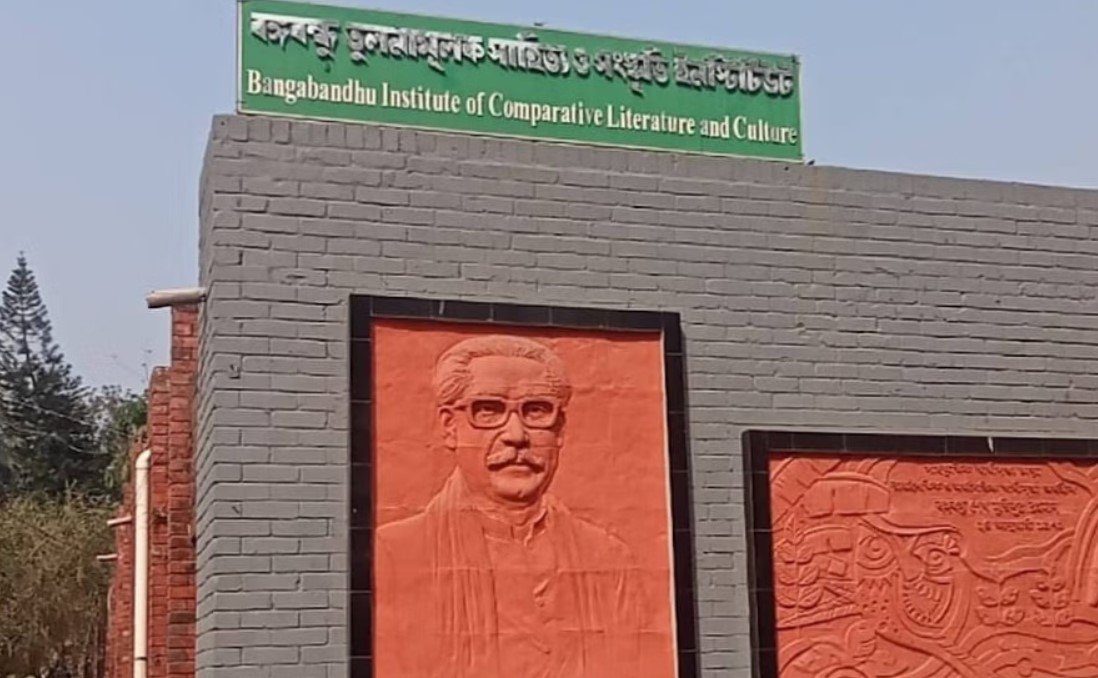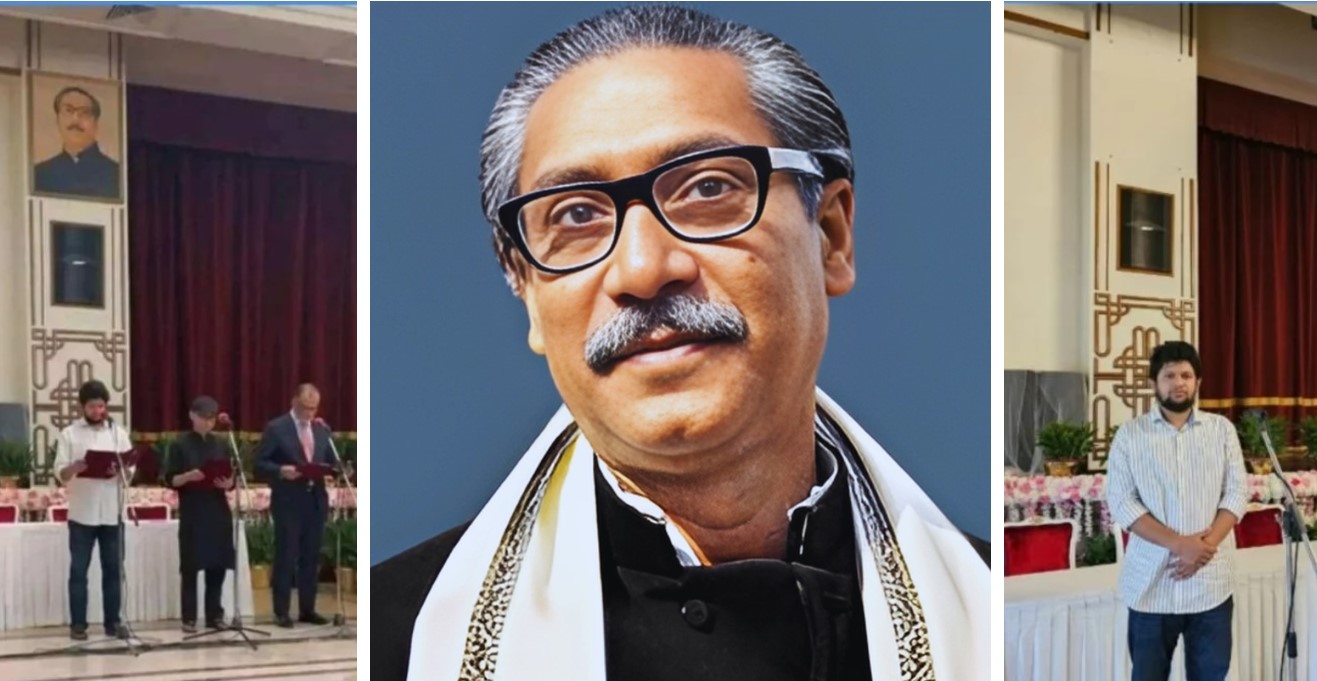Bangabandhu’s photo removed from Bangabhaban Darbar Hall
JU drops 'Bangabandhu’ from institute’s name

The photo of Father of the Nation Bangabandhu Sheikh Mujibur Rahman has been removed from the wall at Darbar Hall in Bangabhaban, the official residence of Bangladesh's president.
Newly appointed Adviser Mahfuj Alam, in a Facebook post on Monday, said, "The photo of Sheikh Mujibur Rahman - Post '71 fascist, is removed from Darbar Hall. It is a shame for us that we couldn't remove his pictures from Bangabhaban after the 5th of August. Apologies. But, he won't be seen anywhere till people's July spirit lives on."
Alam further wrote, "Awami League must acknowledge and apologise for what Sheikh Mujib and his daughter have done to the people of Bangladesh, starting from non- the democratic '72 constitution to famine, laundering of billions [of takas] and extrajudicial killings of thousands of dissidents and opponents (1972-75, 2009-2024). Then, we can talk about pre '71 Sheikh Mujib. Without apologies and trials of fascists, there won't be any kind of reconciliation."
No response from the press secretary of the President was available.
However, a press wing official said that the photo of Bangabandhu was present last night when three new advisers took their oath in Darbar Hall.
"They went home after the oath programme; I have no knowledge about the incident," he added.
According to Article 4A of Bangladesh's Constitution, "The Portrait of the Father of the Nation, Bangabandhu Sheikh Mujibur Rahman shall be preserved and displayed" in key government offices, including those of the president, prime minister, speaker and chief justice, as well as in government and semi-government offices, educational institutions, and embassies.
In 2000, the Awami League government passed a law making it obligatory for all government offices to display Bangabandhu's portrait. However, this law was repealed in 2001 when the BNP-led government took office.
JU drops 'Bangabandhu’ from institute’s name

Meanwhile, the authorities of Jahangirnagar University have removed Bangabandhu's name from the "Bangabandhu Institute of Comparative Literature and Culture (BICLC)".
The decision to change the name to "Institute of Comparative Literature and Culture", was made at a Syndicate meeting held on Sunday, said University Registrar Dr ABM Azizur Rahman.
JU Pro-Vice Chancellor Professor Sohel Ahmed confirmed that the decision was approved in response to longstanding student demands.
Reacting to the change, Borhan, a student from the institute's 51st batch, said, "We have long been requesting a name change. Previously, people outside the university often misunderstood the focus of our institute because of its name."




